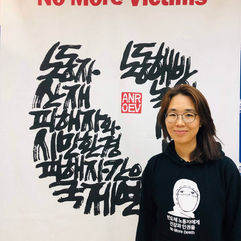

United Nations Responsible Business and Human Rights Forum, Asia-Pacific


18 September | 13:15-14:30 ICT
“Colorless, Odorless”: Workers’ Stories, Highlighting Women and Migrants, Facing Invisible Hazards in Asia’s Semiconductor and Display Industries
Organized by:
-
Supporters for Health And Rights of People in Semiconductor Industry
-
Korean Transnational Corporations Watch
-
Asian Network for the Rights Of Occupational and Environmental Victims
-
Asia Monitor Resource Centre
Background
Since the death of a Samsung Electronics’ semiconductor worker from acute leukemia in 2007, a social movement in South Korea has actively demanded corporate accountability for occupational diseases in the semiconductor industry. Nearly two decades later, occupational health issues in so-called “high-tech” industries—such as semiconductors and displays—continue to recur not only in South Korea but also in other parts of Asia, including Vietnam.
The documentary Colorless, Odorless, which was screened at the Jeonju International Film Festival earlier this year, addresses the common occupational health risks faced by workers—especially migrant workers, women workers, and youth vocational trainees—in the semiconductor and display industries across Asia.
This session will feature a screening of the film, followed by commentary and a Q&A session with activists from SHARPS, who have long worked on occupational disease and accident issues in the electronics sector and also appear in the film. The discussion will shed light on labour rights issues in Asia’s electronics supply chains. Through this, the session seeks to highlight the need to strengthen rights holders’ participation and regional solidarity amid growing challenges to human rights in supply chains.
Key Objectives
-
Recognition of the Importance of Inclusion and Participation of Rights Holders: This session aims to help the audience recognize the issues faced by rights holders—such as workers, women, and migrants—in electronics supply chains, and the need to ensure their inclusion, active participation, and central role in shaping the BHR agenda.
-
Recognition of the Need for Regional Solidarity and Its Strengthening: This session seeks to raise awareness among the audience that labour issues, such as occupational diseases, are structural problems occurring across borders throughout the region, and to strengthen regional solidarity in addressing these issues.
-
Creation of a Multi-Stakeholder Dialogue: This session aims to provide a space for diverse stakeholders in the BHR field—including workers, women, migrants, human rights defenders, businesses, governments, and academia—to engage in dialogue on human rights concerns in the electronics industry, with a particular focus on labour rights and occupational disease issues.
Guiding Questions
-
How can rights holders—especially workers, women, migrants, and youth trainees—be meaningfully included in shaping corporate accountability and occupational health policies in the electronics industry?
-
What opportunities exist for building stronger regional solidarity to address recurring occupational diseases and other labour rights issues in electronics supply chains across Asia?
-
What actions can businesses, governments, and other stakeholders take to ensure safe and healthy working conditions in high-tech industries, and to provide effective remedies when harm occurs?
Format
-
Film screening, commentary and Q&A
Session Partners
%20-%20Hyunjun%20Y.png)
%20-%20Hyunjun%20Yang.jpg)



